COOL GADGET THAT MAKE'S THE FUTURE EXITING
Food gadgets
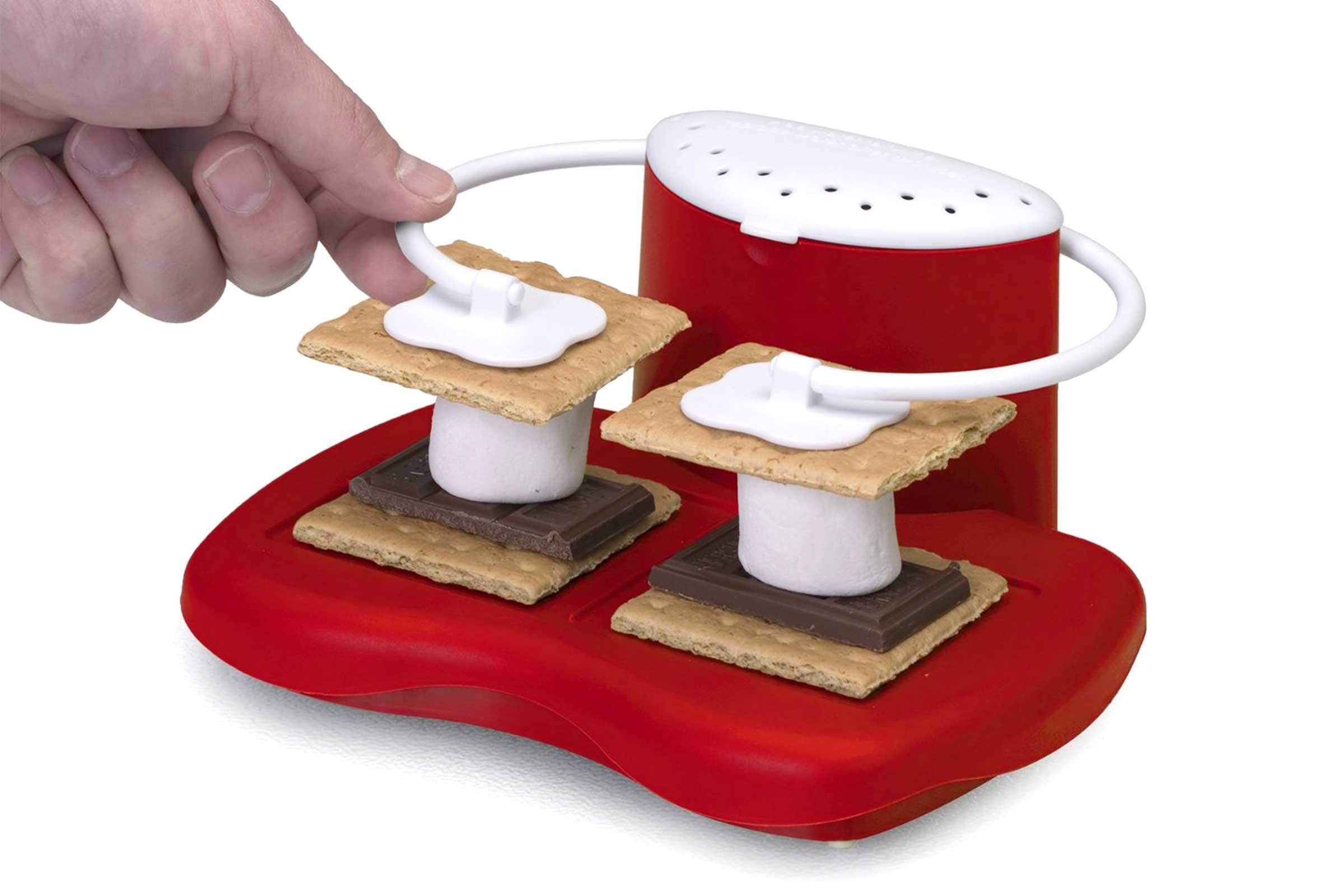
How long has that block of cheese been in your fridge? You could eat it and find out, or you could try some of these trackers that work with Alexa.
Chicago-based startup Ovie Smarterware is developing food tracking tech. After you tell Amazon's voice assistant technology what you're putting in your fridge, it'll track how many days it can stay fresh.
But you'll need to strap a little tracker to the food item, and it will turn colors when the cheddar is no longer ideal for eating. Cost: $59 for a set of three.
Voice assistant tech
Microft says it's the first open-source voice assistant. This means other companies could buy and brand Mycroft as their own voice assistant, under a new name.
For example, other retailers could have their own smart speaker using Mycroft's AI platform to compete with Amazon Alexa and Google Assistant.
Mycroft says it runs anywhere, including on desktop computers, inside a car or on wearables and other internet-connected devices.
High-tech telescope
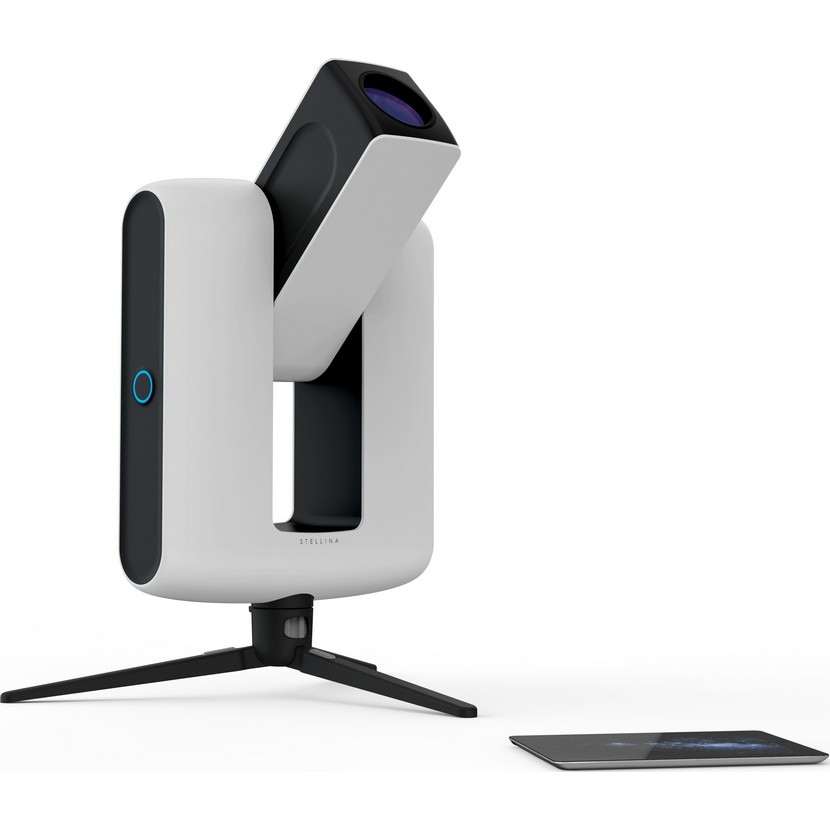
STELLINA is a larger portable telescope that works with a smartphone and tablet app.
Instead of searching the night sky yourself, you can select which planet or constellation you'd like to view from the app. The telescope will automatically find it and send images back to your device.
The telescope includes light-pollution filtering to help city-dwellers see more stars. The 15-pound device can run for 10 hours with an external battery.
The telescope will be available starting in March in Europe. Cost: $2,500
Joe Perry boom box

Monster unveiled a collection of new speakers and headphones, but here's a fun one for Aerosmith fans: lead guitarist Joe Perry now has his own boom box.
Perry partnered with the audio and headphone maker on the Monster Blaster Classic Rock Edition JP1000. The device emphasizes the mid-range and higher frequencies of the sound, so vocals, guitars and other instruments are heard more clearly.
The JP1000, which comes in a smaller (price TBD) and bigger size ($600), will be available this quarter. The first 200 will be signed by Perry.
Sidewalk robot
This sidewalk robot will hold your stuff.
The TwinswHeel -- which resembles a rolling ice cream sandwich -- is a parcel delivery robot. It uses built-in sensors and cameras for "shape" detection to lock onto its human's location and then follow them around, like a puppy or "butler."
Each side consists of a a large, rugged wheel. A container is squeezed in between for carrying cargo like shopping bags or tools for construction.
The French company intends for it to be used at hospitals, farms, restaurants, in the military and "space conquest."
Teaching girls to codeThis doll on a scooter intends to help girls learn how to code.
The scooter, designed by SmartGurlz, is controlled with an app, and uses tools to teach kids about math and computing along the way.
Sleep devices

THE Dreamlight is a high-tech eye pillow designed to help you get more rest.
The device uses soothing sounds, such as a rainforest, and special lights to improve your rest. The company also claims it can assist with jet lag and offer a "beauty facial."
The product will launch a crowd-funding campaign later this month.
Other tech companies believe tech can promise more hours of sleep, too. Sleep Number showed off its smart bed, which collects hundreds of measurements per second, and the Nokia Sleep device -- which goes under a mattress -- analyzes what's disrupting your slumber.
Prosthetics that learn how you move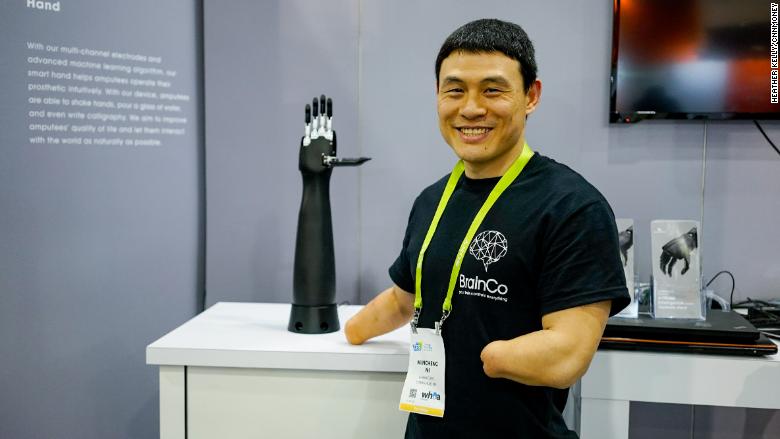

Brain robotics wants to build a new kind of prosthetic limb.
The device uses a band of eight electrodes to detect the electrical signals caused by contracting muscles -- called electromyography -- when the wearer moves. It collects that information and uses it in an algorithm that learns your habits over time.
When the wearer's muscles replicate the signal, the prosthetic will move accordingly.
But the real innovation of the device could be its price. It will cost $2,000 to $4,000, less than similar designs. And it will have a modular design that allows the wearer to replace any individual broken pieces instead of having to repair the entire limb.
The year-old company was started in Boston by MIT and Harvard graduates, and was originally part of the Harvard Innovation Lab. The prosthetic is still in the testing phases with with early users like Mincheng Ni (pictured). BrainRobotics hopes to have it in mass production by the end of 2018.
Electric retro roadster

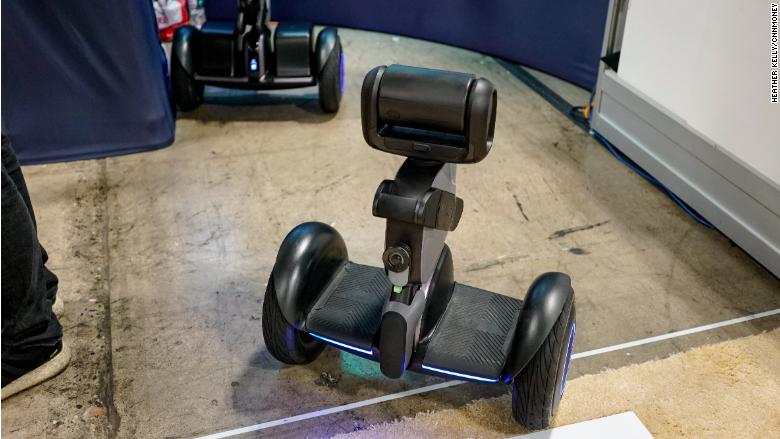

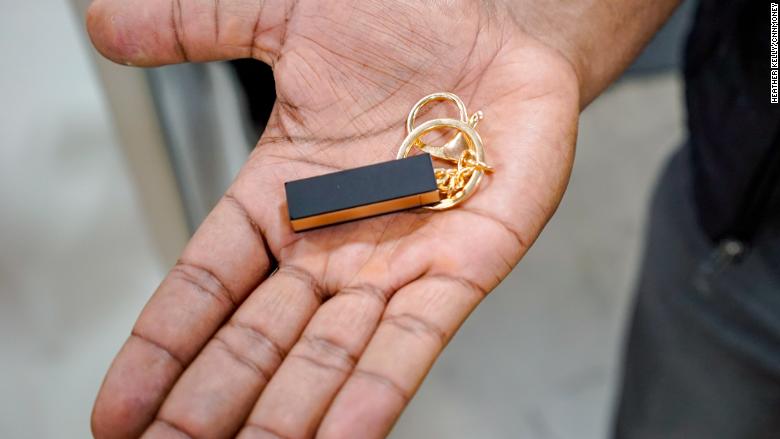
Electric retro roadster
The Provo, Utah-based company is known for custom three-wheeled cars for sports driving, touring and city driving. The Edison is no exception.
The two-seater, which has a vintage look, has a range of 200 miles on a single charge. But don't drive it in the rain, unless you're OK with being exposed to the elements. Price: $34,950.
Rideable security robots

Turnig videos nimbo security robot isn't going to stop a robbery. But it can summon human security or police officers who can.
The two-wheeled robot is designed to ride around indoors, such as a retail store, and its built-in video cameras can monitor for unusual activity. It can also mingle with customers or work in tandem with a human guard, who can step on it like a scooter.
Ping pong robot

Rollable TVPing pong robot

You can't actually buy Forpheus -- a giant ping pong playing robot -- but the parent company Omron showed how fun interacting with robots can be.
The tech uses a combination of cameras, motion detection sensors and machine learning to execute its impressive ping pong skills.
LG Display -- the research arm of LG Electronics -- unveiled a prototype of its latest rolling screen technology.
The 4K OLED display resembles a normal TV screen, but the back has small vertical slats which let it roll up around a metal base. You can lower the screen into a box by pressing a button.
But such displays won't be in electronics stores anytime soon. The company sells the tech directly to display manufacturers, which may or may not use it for their own devices.
Allergy detection gadgets

Allergy amulet is a portable device that can detect food allergens or certain ingredients. It also doubles as a cute piece of jewelery when hung on a necklace.
To use the device, you'll need to insert a disposable test trip into any suspicious food and pop it in the reader. After a few seconds, the reader will turn red or green to tell you if the food contains the target allergen or ingredient. It can test for milk, soy, dairy, shellfish, finned fish, wheat, eggs and nuts.
Each strip costs $1 to $3 and the reader will cost between $100 to $250. Pre-sales begin this fall and the device will be available in 2019.
Another startup called Nima also showed off pocket-sized devices that test a food sample for the presence of peanut proteins or gluten.Nima's sensors take about three minutes to test the sample, but the results can be quicker if there is more of an allergen present.
The Nima Gluten Sensor is available now for $289, while the Nima Peanut Sensor is available for pre-order at a discount of $229.
Self-driving corner stores


Self-driving corner stores

Robomart is an on-demand, electric, self-driving store that could automate food deliveries.
A hungry person can use the smartphone app to summon the food car to their home or office. They grab the food they want from inside and sensors will automatically detect what's missing and charge their account.
The Santa Clara, California-based startup showed off a small version its car, but the real model is the size of a minivan. The company hopes to be on streets later this year. It plans on leasing the cars to brands, such as Whole Foods or your local sandwich spot.
The driverless, refrigerator-on-wheels concept is the latest in a string of startups trying to automate small shops.
Aipoly, another company at CES, wants to use cameras and image recognition to automate shops. Meanwhile, Ford announced is working with Domino's to test self-driving pizza delivery technology in Michigan, and Toyota is teaming up with Pizza Hut and Amazon for deliveries made by self-driving trucks.
Robot dog

We're only a few weeks into the new year, and companies are already teasing their latest and greatest technologies for 2018.
From smart telescopes and surveillance for dogs to an electric roadster, here are some of the neatest gadgets that attracted attention at Consumer Electronics Show in Las Vegas.
To start, Sony showed off a revamped version of its robot dog Aibo. It can do things like find a ball or bone, dance, and give a high-five.
Aibo has AI advancements, like developing its own personality over time, and it can recognize people via using facial recognition. The robot dog can also tell people apart from objects like a bone.
Unlike previous models, it has OLED eyes, which make it look more realistic.
Aibo costs ¥198,000 (about $1,740). Pre-orders began in November, and it will start shipping in Japan next week.



No comments:
Post a Comment